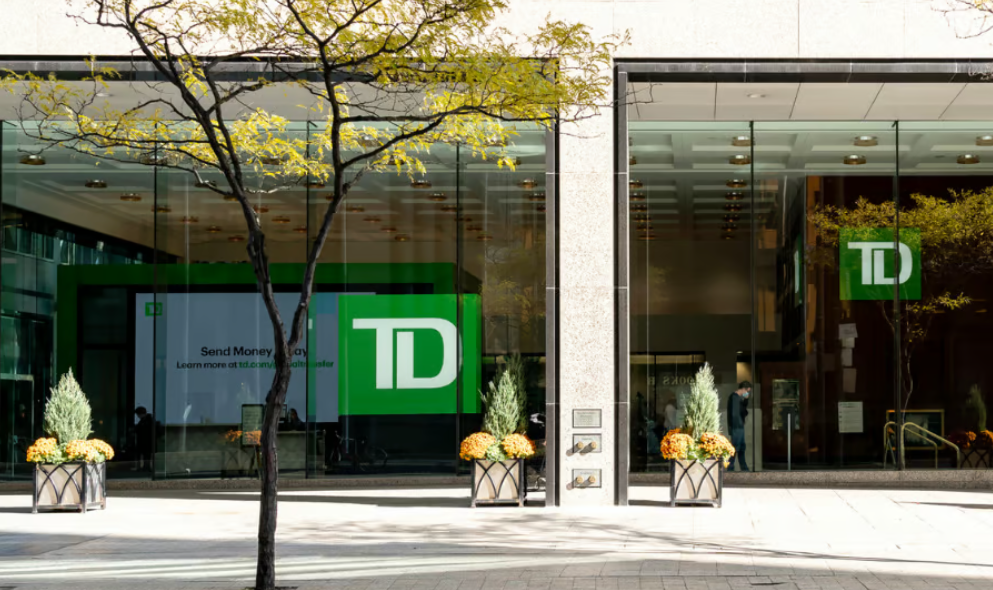

The dark cloud that has been hanging over TD Bank since it was first reported to be under investigation by US regulators, may break slightly Thursday according to the Wall Street Journal.
The publication says that the Canadian big six bank may settle charges as soon as today (October 10) that would end the long-running probes into its anti-money-laundering procedures after allegations it failed to pick up activities by drug cartels.
The WSJ reported late Wednesday that TD’s primary US regulator, the Office of the Comptroller of the Currency, could impose a $3 billion penalty and order an asset cap that would restrict the bank’s growth prospects in the US.
Unnamed sources told the WSJ that the settlement would also include the Justice Department, FinCEN, and the Federal Reserve.
It would place TD under a similar monitoring and restrictions regime as Wells Fargo. The Wall Street firm was caught operating fake accounts for customers in 2018 and has since faced curbs on its growth and additional costs to improve compliance procedures.
The investigations have cost TD in both financial and growth terms, derailing its planned takeover of US regional bank First Horizon, weakening its share price, and leading to its first quarterly loss since 2003.
Last month, TD was ordered to pay a $20 million fine plus $8 million to customers after the US Consumer Financial Protection Bureau found it “repeatedly shared inaccurate, negative information about its customers to consumer reporting companies,” which negatively impacted customers’ credit. The CFPB said TD knew about the issues for more than a year before fixing them.
TD has also recently agreed to pay over $20m to settle investigations by US prosecutors and regulators into allegations of a former trader’s “spoof” orders aimed at manipulating the US Treasuries market.

The quartet of deals across New York, Florida, Ohio, and New Mexico reinforces the fast-growing integrator's leading position in the independent space.

UBS and Wells Fargo have made their own additions in the Northeast, including a Massachusetts duo defecting from Commonwealth.

Goldman Sachs' new private credit fund aims to bring alternatives to 401(k) plans, joining a wave of asset managers targeting the DC market.

Don't miss your chance to be honored among the industry's best

With 102 transactions logged in the three-month period up to June, Echelon Partners is projecting a new banner year for dealmaking across the industry.
Orion's Tom Wilson on delivering coordinated, high-touch service in a world where returns alone no longer set you apart.
Barely a decade old, registered index-linked annuities have quickly surged in popularity, thanks to their unique blend of protection and growth potential—an appealing option for investors looking to chart a steadier course through today's choppy market waters, says Myles Lambert, Brighthouse Financial.
